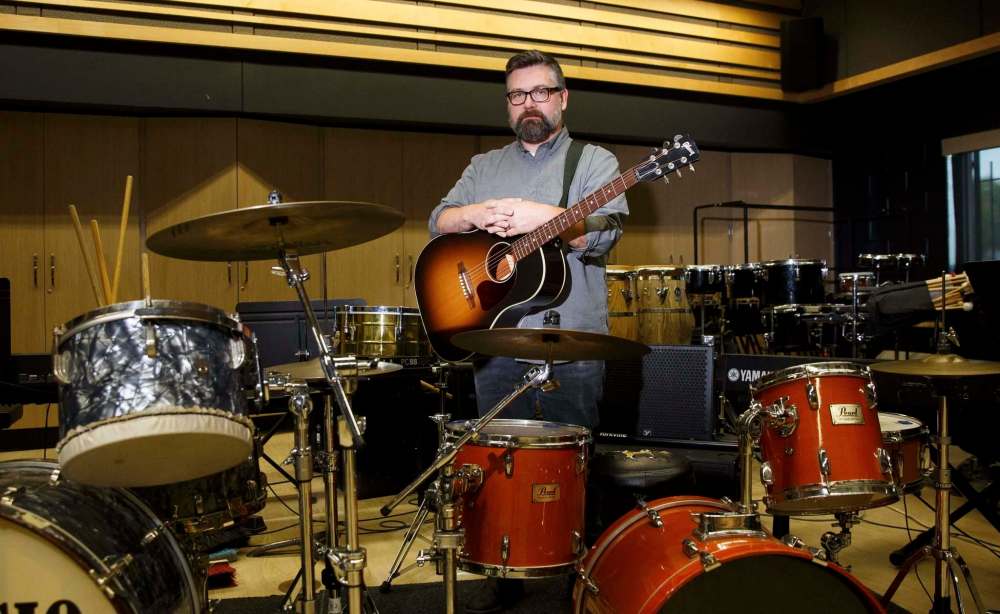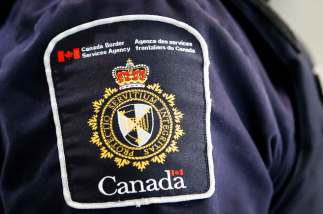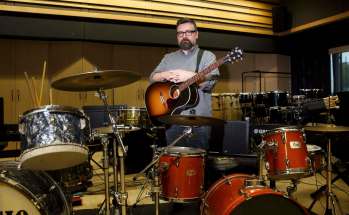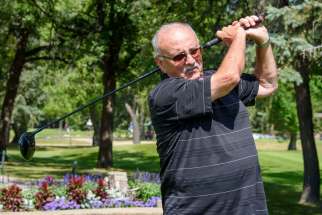Music educators offer sound suggestions
Read this article for free:
or
Already have an account? Log in here »
To continue reading, please subscribe:
Monthly Digital Subscription
$0 for the first 4 weeks*
- Enjoy unlimited reading on winnipegfreepress.com
- Read the E-Edition, our digital replica newspaper
- Access News Break, our award-winning app
- Play interactive puzzles
*No charge for 4 weeks then price increases to the regular rate of $19.00 plus GST every four weeks. Offer available to new and qualified returning subscribers only. Cancel any time.
Monthly Digital Subscription
$4.75/week*
- Enjoy unlimited reading on winnipegfreepress.com
- Read the E-Edition, our digital replica newspaper
- Access News Break, our award-winning app
- Play interactive puzzles
*Billed as $19 plus GST every four weeks. Cancel any time.
To continue reading, please subscribe:
Add Free Press access to your Brandon Sun subscription for only an additional
$1 for the first 4 weeks*
*Your next subscription payment will increase by $1.00 and you will be charged $16.99 plus GST for four weeks. After four weeks, your payment will increase to $23.99 plus GST every four weeks.
Read unlimited articles for free today:
or
Already have an account? Log in here »
Hey there, time traveller!
This article was published 04/08/2020 (1955 days ago), so information in it may no longer be current.
An ensemble of educators wants to ensure the pandemic doesn’t silence music class in Manitoba next year.
Over the weekend, the Manitoba Music Educators’ Association published a series of recommendations on how to safely teach band, music production and other related courses, while taking into consideration public health protocols.
The 22-page document recommends groups of ensembles shrink, teachers use disposable gloves to help tune instruments and use personal microphones so they do not have to speak loudly to students, and that there is no sharing of instruments, sheet music or stands.
Returning to Manitoba Music Classrooms
Teachers should open windows and space out and stagger students during rehearsals, according to the MMEA. As for group singing, teachers are being asked to limit choral sessions in enclosed spaces to 30 minutes or less.
Manitoba’s COVID-19 Guidelines for Vocalists and Instrumentalists
• Explore and offer virtual opportunities
• Use outdoor sites and follow gathering limits for events
• Allow for at least two metres between performer seating and standing arrangements
• Explore and offer virtual opportunities
• Use outdoor sites and follow gathering limits for events
• Allow for at least two metres between performer seating and standing arrangements
• Consider placing a barrier in front of a vocalist or musician
• Have performers face away from eachother while singing or playing instruments that are played by blowing air into them
• Do not share mouthpieces, instruments, microphones, music stands or sheet music
• Thoroughly clean instruments after use
• Perform hand hygiene after cleaning an instrument
“(Music education) is an incredibly important area for students — not only just for social and emotional reasons, but they also need those credits to graduate,” said Les Chalmers, who teaches guitar and music production at River East Collegiate.
Chalmers added that a student’s love for music class is sometimes what draws them to attend school.
The province’s back-to-school plan prioritizes “core curriculum,” which the education minister has said includes literacy and numeracy. The guidelines suggest technical vocational education can continue as long as social distancing takes place, while schools will have to independently assess their ability to offer sports and music as extracurriculars.
MMEA president Virginia Helmer and her colleagues insist that music, a mandatory part of the K-8 curriculum, should be considered a core subject — mid-pandemic or not.
“We have yet to be told that we can transmit COVID-19 through soundwaves… Being able to communicate with one another and share music with one another is so important; we don’t want to lose it,” said Helmer, who is a middle-school music teacher in the Pembina Trails School Division.
“We have yet to be told that we can transmit COVID-19 through soundwaves.” – MMEA president Virginia Helmer
She said Tuesday it is important to emphasize that arts education contributes to student well-being and provides a foundation for learning in all areas of the curriculum; especially for younger kids, she said, who learn to expand their vocabulary by sounding out words through song.
While the province’s back-to-school plan favours teachers moving between classrooms rather than students, the MMEA wants music rooms to operate as usual, if possible, so students have an opportunity to stretch their legs, and visit a space and teacher that are familiar — likely the case if they are not attending a new school this fall.
Music rooms are often larger than regular classrooms, it adds, noting that will allow for physical distancing if weather conditions prevent outdoor classes. Between classes, MMEA recommends breaks are added so there is time for cleaning and music rooms can air out.
In order to meet these recommendations, the association expects instruments, specialized cleaning supplies and portable microphones for teachers, among other line items, will be added expenses for school divisions this year.

The document offers flexibility, depending on what the province and local divisions decide is safe before September: if singing and wind instruments are banned, teachers can focus on stringed instruments, percussion and music production; if indoor concerts are not allowed, they could be held virtually or outdoors; if masks are required, students could wear masks with slits in them to play instruments.
Music class is often centered around preparing students for final concerts, but the pandemic could provide an opportunity to focus on the process rather than the final product, said Jody Stark, an associate professor of music at the University of Manitoba.
If the use of instruments is limited this year, Stark said teachers can turn their attention to project-based learning and music theory.
maggie.macintosh@freepress.mb.ca
Twitter: @macintoshmaggie

Maggie Macintosh reports on education for the Winnipeg Free Press. Funding for the Free Press education reporter comes from the Government of Canada through the Local Journalism Initiative.
Our newsroom depends on a growing audience of readers to power our journalism. If you are not a paid reader, please consider becoming a subscriber.
Our newsroom depends on its audience of readers to power our journalism. Thank you for your support.








